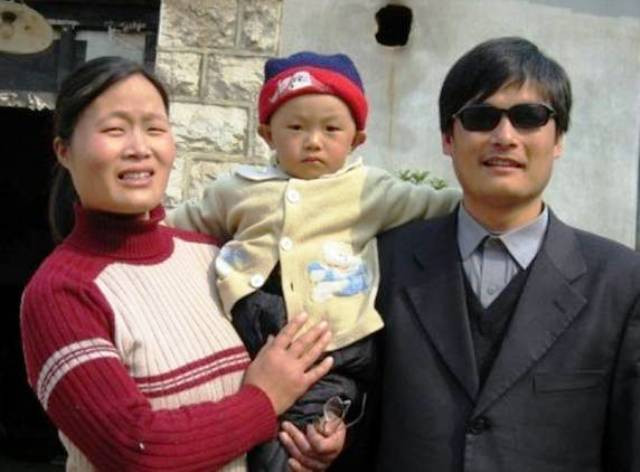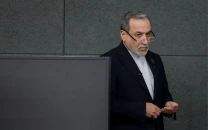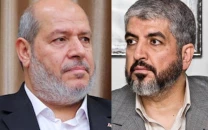China-dissident: China dissident Chen expects Beijing to allow U.S. trip
Foreign Ministry said Chen could apply to study abroad, cooperation in travel arrangements remains unclear.

In a brief telephone interview with Reuters, Chen said he was still in a Beijing hospital undergoing checks, which identified an intestinal problem as enteritis or chronic inflammation from an apparent infection. Some of his supporters had voiced fears that he was suffering from cancer.
"I can't move around much but I'm feeling better," he said, sounding more relaxed than last week, when he was the centre of a diplomatic crisis between the two superpowers just as U.S. Secretary of State Hillary Clinton was visiting Beijing.
Chen, 40, had taken shelter in the U.S. embassy in the Chinese capital for six days after an audacious escape from Communist Party officials who had kept him locked up under house arrest in his home village for 19 months.
After leaving the embassy on Wednesday, under a deal that foresaw him staying in China, Chen changed his mind and said he wanted to spend time in the United States to recuperate from the years of imprisonment and harassment that made him one of his country's most recognised representatives of the "rights defence" movement campaigning for expanded civic freedoms.
China's Foreign Ministry said on Friday that Chen could apply to study abroad, prompting an offer of a fellowship from New York University, though it remained unclear if China would cooperate in the dissident's travel arrangements.
Chen said on Monday that Chinese authorities had no reason to try to stymie him and his wife and two children from going to the United States.
"I still don't know when I'll leave, but it shouldn't be too long," he said.
"The (Chinese) government openly promised to respect my rights as a citizen, and I expect them to live up to that promise," he added. "If they did try to frustrate my plans, then they'd be slapping their own face, and I don't think they will do that," Chen said of his plans to travel abroad.
Any more ructions with Beijing over Chen's future could embolden U.S. critics of President Barack Obama's China policies as the United States gears up for presidential elections in November. They had seized on Chen's pleas for safety and his assertions, later retracted, that U.S. diplomats had left him isolated after escorting him from the embassy to the hospital.
U.S. Vice President Joe Biden said on Sunday the United States was ready to give Chen a visa "right away" so that he could take up the fellowship at New York University.
"I think his future is in America," Biden told "Meet the Press" on NBC.
Chen's long confinement, his audacious escape and the furor that ensued have made him part of China's dissident folklore: a blind prisoner outfoxing Communist Party controls in an echo of the man who stood down an army tank near Tiananmen Square after the crackdown in 1989.
In 2006, Chen was sentenced to more than four years in jail on charges - vehemently denied by his wife and lawyers - that he whipped up a crowd that disrupted traffic and damaged property.
He was formally released in 2010 but remained under stifling house arrest in his home Dongshigu village in Shandong province, which officials turned into a fortress of walls, security cameras and guards in plain clothes who kept Chen isolated.
Dongshigu, where Chen's mother and other relatives remain, was still under lockdown on Friday. Reuter’s journalists who tried to visit the village were turned away by guards.
During his escape, Chen broke his right foot.
"I have a cast on it," Chen told Hong Kong's Cable News on Sunday. "No major problems came up in other medical tests, just minor problems. I'm undergoing treatment now."
Chen told Cable News that, being bed-bound, he could not apply for a passport himself.
"I can just inform the hospital staff and ask them to help me out," he said. "I am happy, of course, very happy. I am happy because they have invited me over to pursue my studies there."
Chen has said he remained worried about his frail mother, brother Chen Guangfu and nephew Chen Kegui, whom he fears face retribution from officials in Shandong who have accused them of aiding his escape.



















COMMENTS
Comments are moderated and generally will be posted if they are on-topic and not abusive.
For more information, please see our Comments FAQ